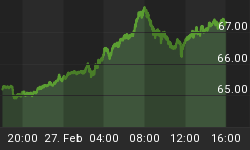Back in 2014, an investigative journalism agency leaked a total of 548 favorable tax rulings that multinational companies obtained in Luxembourg in the period from 2002 to 2010.
At that time, in the so-called LuxLeaks scandal, the International Consortium of Investigative Journalists (ICIJ) alleged that companies from all over the world "have channeled hundreds of billions of dollars to Luxembourg and saved billions of dollars in taxes”.
Luxembourg, a tiny state in the European Union, is not on the top safe-haven list for the ultra-wealthy without reason.
At least 279 members of the Forbes billionaire list have companies in the Duchy of Luxembourg, and none is a Luxembourg citizen. As a matter of fact, nearly 90% of companies registered in the country are controlled by foreigners.
Despite its size and rather small population, the country is home to 16,777 investment funds, which account for at least $ 5.4 trillion between them. That makes Luxembourg the second largest home of funds after the United States.
Following the LuxLeaks scandal and pressure from the European Union, Luxembourg authorities passed a law in 2019 requiring a company to release the names of their beneficial owners but according to the media, the database is useless.
However, as much as 80% of these investment funds have not declared their beneficial owners. Those were the new findings by the group of media outlets in a fresh investigation called OpenLux.
“Taken together, a significant number of Luxembourg-based funds appear to have failed to identify their owners as required by law…The industry, with the trillions of euros in assets under its management, continues to operate as a black box,” the investigation said.
Among the beneficial owners revealed by the investigation, alongside billionaires, singers, actors, and sports celebrities, the investigation also found corrupted politicians, leaders of criminal organizations from around the world, the teenage children of a Russian oligarch, arms dealers… and so on.
According to the annual Financial Secrecy Index by the UK-based Tax Justice Network, Luxembourg ranks 6th on both the Financial Secrecy Index and the Corporate Tax Haven Index, making it the world’s sixth greatest enabler both of financial secrecy and of corporate tax abuse.
“Last year, the State of Tax Justice 2020 revealed that Luxembourg costs the world $28 billion in lost tax every year by enabling corporate tax abuse and private tax evasion,” the report said.
Luxemburg takes its secrecy seriously. So much so that breaking professional secrecy can result in a prison sentence.
Former PricewaterhouseCoopers employees Antoine Deltour and Raphael Halet, the whistleblowers behind the “Luxleaks” scandal, were tried and sentenced for violation of Luxembourg’s secrecy laws. Deltour was given a six-month suspended sentence, while Halet was given nine months.
However, Luxembourg's highest court rejected the sentence for Deltour and ruled that he should have been recognized as a whistleblower. The court upheld a conviction against Halet. Still, the LuxLeaks revelations prompted the adoption of an EU Directive for Whistleblower Protection, which has yet to be implemented in many EU member states.
Over the last few years, Financial Secrecy Index usually gathers the same destinations and more or less in the same order. However, in the 2020 report, for the first time in 11 years, Switzerland didn't rank at the top of its list.
The top spot this year has been awarded to the Cayman Islands, followed by the United States, which overtook Switzerland in global ranking of financial secrecy hotbeds.
Caymans, a British Overseas Territory in the western Caribbean Sea, holds $1.4 trillion in assets managed through 200 banks. With more than 95,000 companies registered, it is the world leader in terms of hosting investment funds.
According to Tax Justice Network’s report, Cayman has increased its supply of financial secrecy to the world by 24%. The report said Cayman’s role in global financial secrecy emanates from its hedge fund industry, which uses companies, trusts and limited partnerships that it’s almost impossible to track ownership for.
“A higher rank on the index does not necessarily mean a country is more secretive, but that the country plays a bigger role in enabling wealthy individuals and criminals to hide and launder money extracted from around the world,” the report explained.
By Tom Kool for Safehaven.com
















